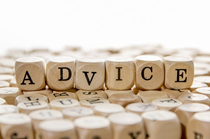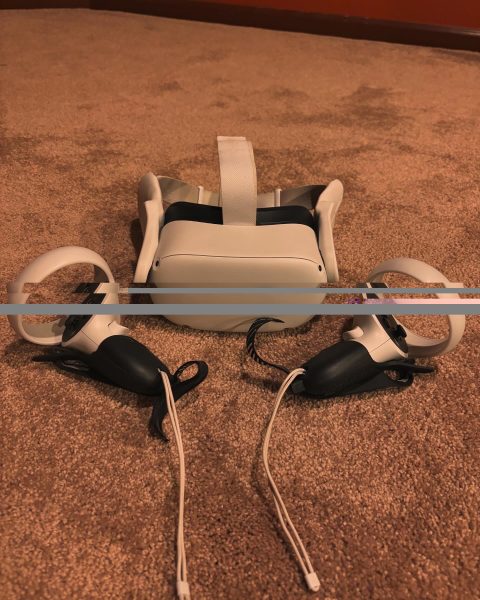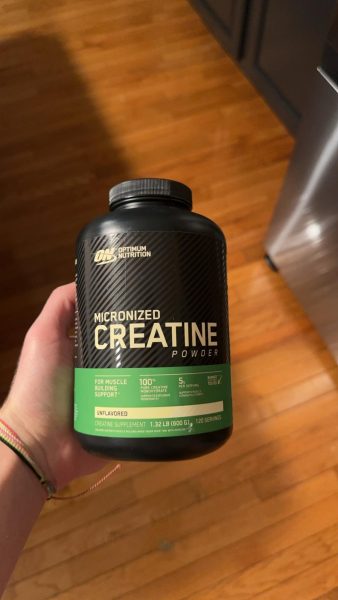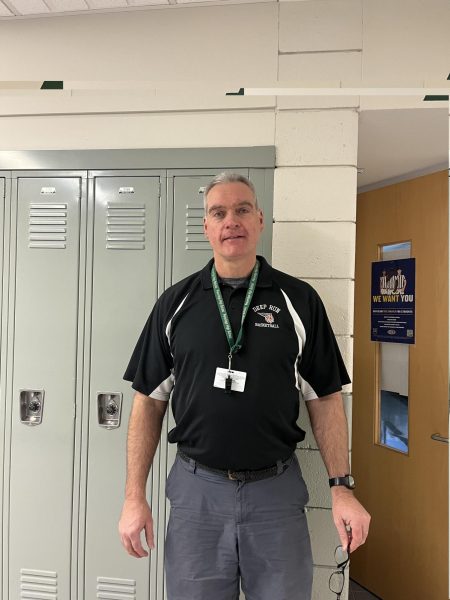They Said…
Impactful Advice in A High School Student’s Life

Advice on Wooden Cubes
Schools are supposed to teach students how to write, do math, and recall history, but sometimes the most important lessons are not what we were taught in class. Maybe it is what’s said in the hall between friends, what’s observed at the school dance, or even the after-class talk with a teacher. Some of the key lessons in our life about life can be picked up here.
Things like advice can help students to find ground and stability within the chaos of high school and adolescence overall. Advice refers to guidance for future actions. We’ve all given advice and heard plenty of it as well, but have we taken it all into account? What advice do high school students have to give their younger selves?
What advice would they pass on to others that they had heard in their past? It turns out that there is a significant amount that falls under this category. The most abundant advice fell under the umbrella of mental health and confidence. With the increasing awareness of mental health, it only makes sense that we see an increase in talking about it within our schools. The quote that stood out the most to me was from Pennridge Senior, Taylor Landis. Taylor had said that she struggled with some mental health issues and has since conquered them, making her feel apt to give advice on the subject. She said, “ Don’t let school deteriorate your mental health. Whether it’s meditation, water, good food, or reading, prioritize those things that make you able to be functioning and okay. Don’t spiral, don’t stress the small things, don’t make your grades over everything else.” Through these quotes, she speaks about how it was much harder than expected to be able to balance school life as she wanted and the self-care that she needed. She said she’d give this advice to her future self and the underclassmen in her life too. A more common but important piece of advice was given by Junior Laney Minko. Laney said, “Reach out to people if you need help, and don’t isolate yourself because it will just make it worse.” This was, again, an experience that she had run into herself, and this advice that she gives others is what she learned from that. Students who aren’t afraid to speak out about mental health awareness are the ones who break the stigma and the ones who will make a difference within this. Students who give advice like this and help others will be those students.
Another part of high school is growing up. Finding friends and the right crowd can be stressful as a freshman. Where should you sit? Will they like me? These common questions will roll through a new student’s head. Brenna Broadbent, Pennridge Senior, said, “ I feel like I grew up sheltered and tried to grow up too fast. Be at the point you are in, in the present. Time just felt like it was going by too fast, I didn’t feel like a kid.” With that, she said she decided to be herself for the time remaining. Fitting in and growing up are all scary things, one of which makes high school even more stressful for a teen.
Landis also had good information when asked about the middle to high school transition she said, “ Go in it open-minded. Do not go in with ideas of the friends you wanna have, or the expectations that you think you have. High school isn’t gonna be exactly what you think it’s gonna be. You might not have straight A’s, your friends will change, your relationships will change…” She had said how interesting it was to see things change over time, to see how the fantasy in her head did not play out as imagined. The relationships built between students change, and the courses, and social life is so unpredictable, which is why Landis stressed such a good point. Go into things with an open mind. Another student, Michael Yencha, a senior, had said, “Don’t fall into the wrong crowd.” As he said, the advice is timeless but it proves itself to be true time and time again. Those around a student influence them and affect their personality greatly. Michael had commented on how he had seen students change and evolve around different crowds and cliques. Friendships will affect a student’s overall well-being in high school, so as Yencha said, “Be nice to people.”
Overall, Meghan Kessler, a junior at Pennridge, said one more impactful thing. When asked what advice stuck with her, she said, “Not everything is as bad as it seems, in reality, it could get worse, so take a deep breath and be thankful.” Meghan captures the gratuity in her life so well with this quote. It is something she values and words she tries to live by, making this advice quite important to her.
When asking students about taking advice, most said they generally would take the advice given to them. Although taking advice isn’t always easy. Sometimes instead of seeking advice, people sought validity. Validity or validation is when someone is looking for someone to say, “you’re right,” to agree with the information at hand and make the subject feel supported. Advice is not that, advice is simply true input from another person. Many seek validation and end up finding manipulation, something that can not so easily be discerned. Because of this overlap, it is key to critically think about the advice given and to analyze all situations at hand. Advice can be tricky, but it’s something people hear and learn throughout life. So looking back, what advice would you give your high school self?
https://hbr.org/2015/01/the-art-of-giving-and-receiving-advice
Sara Cipressi, Grade 12. Sara’s in-school involvement includes the student council (president), NHS, NOVA, and the dance team. Outside of school, she...




